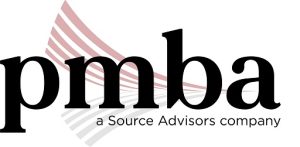As part of the 2015 PATH Act, the R&D Tax Credit Program was significantly enhanced to allow qualified start-up companies to claim up to $250,000 of tax credits against their payroll tax expense. Over the past 18 months, there have been many questions regarding the scope and application of the program including how and when the IRS will issue these refunds. Well, the wait is over. For companies that filed a timely tax return by March 31, 2017, refund checks were issued and received during the month of August based on second-quarter withholding tax filings completed in July.
Scope of The Enhanced R&D Tax Credit Program for Start-Ups

Over the last year, PM Business Advisors has been educating thousands of start-up companies nationwide regarding the R&D Tax Credit Program. The Internal Revenue Code defines a start-up company as those companies having less than $5M of gross receipts in 2016 and not reporting gross receipts prior to 2012. Companies cannot begin to file for refunds until the quarter after they have filed their 2016 Federal Tax Return. Initially, there was professional skepticism around the R&D Tax Credit Program, particularly regarding how the refunds would be issued. Since the beginning, PMBA has been encouraging clients to file their tax returns as soon as possible in hopes of receiving their refund checks this summer. That advice has now paid off for many of our clients as the refund checks are rolling in.
Arable Labs was one of the first companies to receive a refund check in August, “When we first heard about the program through PM Business Advisors we were very excited about the opportunity to recover a large portion of our research expenditures through the new Federal R&D Payroll Tax Credit Program. The PMBA team helped us evaluate our projects and costs to come to a sustainable tax credit position,” said Adam Wolf, CEO and Founder. “As a startup, every penny counts, so you can imagine my excitement when we received a check from the IRS this week for over $20,000, with much more hopefully to follow.”
Can Companies That Previously Filed 2016 Tax Returns Still Apply for the R&D Tax Credit Program?

The PATH Act of 2015 stated that any election to apply the R&D Tax Credit against the company’s payroll tax liabilities must be made on or before the due date of the tax return, including extensions. However, earlier this year the IRS recognized the fact that many startup companies were not aware of the payroll tax election. Pursuant to Notice 2017-23, qualified startup companies that have filed their 2016 tax return without the payroll tax election can amend their tax return by December 31, 2017. To qualify for this extension, the taxpayer must either (1) indicate on the top of its Form 6765, Credit for Increasing Research Activities, that the form is filed pursuant to Notice 2017-23 or (2) attach a statement to its Form 6765 reflecting the payroll tax credit election that the form is filed pursuant to Notice 2017-23.
Can My CPA Handle the R&D Tax Credit For My Company?

Choosing the right provider to assist with the R&D Tax Credit Study is more important than ever under the new Payroll Tax Credit. If the credit is understated, you cannot amend your tax returns to adjust your Payroll Tax Credits (with the one exception under Notice 2017-23). If your credit is overstated, the IRS could recapture part of your refunds on audit and be subject to both interest and penalties. To that end, start-up companies must make sure they are working with a service provider that has a history of successfully identifying and defending sustainable tax credit positions in this subject matter.
Historically, most accounting firms, outside of the top 25 nationally ranked CPA Firms, have relied on independent consulting firms to assist their clients with the R&D Tax Credit Study. The IRS requires both a qualitative and quantitative analysis in order for a company to determine its tax credit. The qualitative analysis takes the taxpayer through a series of tests and inquires to ensure their activities qualify as a research expense. The quantitative analysis helps identify what part of your expenses and salaries can be included as research expenditures. As previously noted, it is important to make sure your credit is accurate.
It is estimated that over 1,000 startup companies have participated in the program through the first six months of 2017. If your company has not taken advantage of the refunds that are available contact Peter J. Scalise, Federal Tax Credits & incentives Practice Leader, at (212) 835-2211 for a complimentary consultation or email Peter at pscalise@pmba.com.
